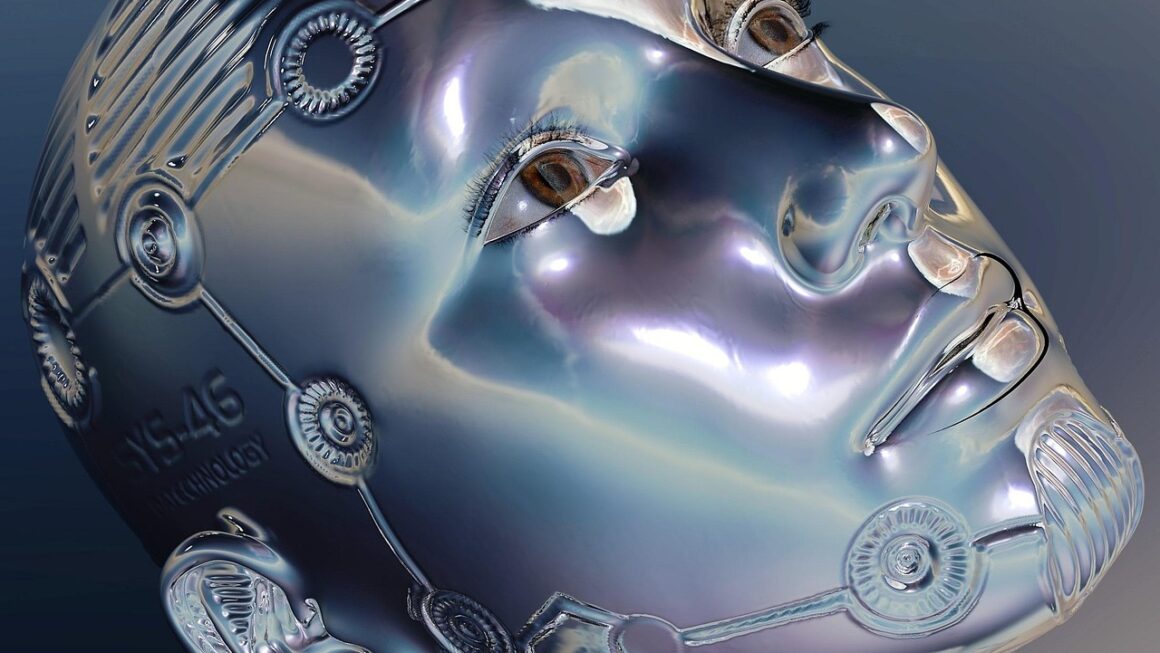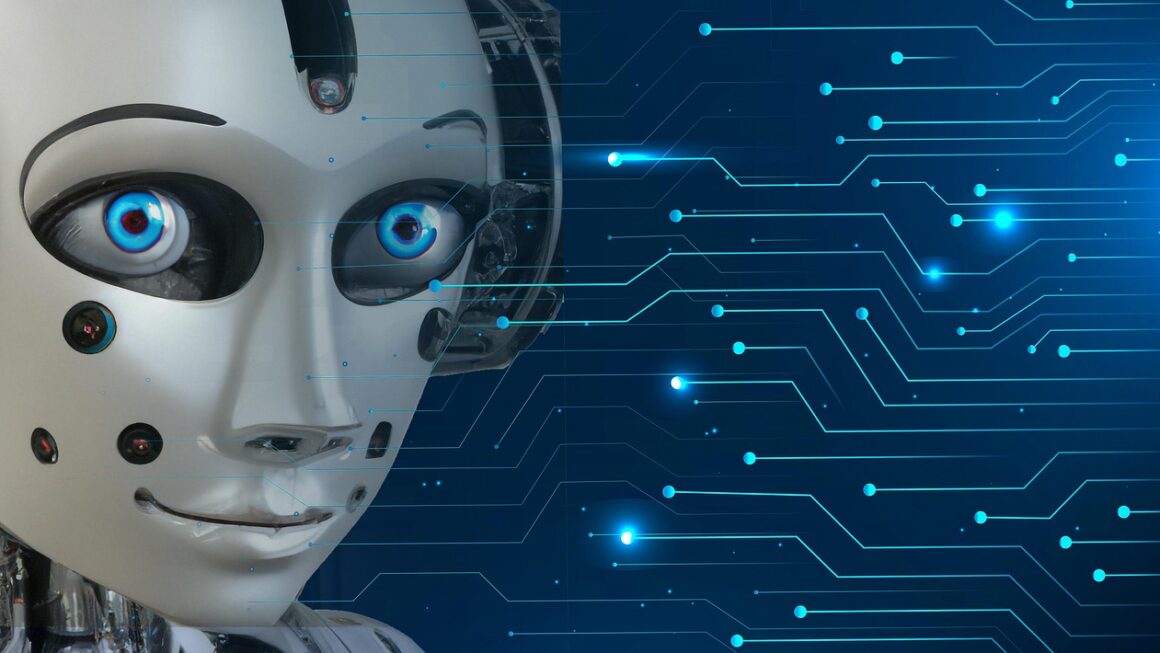The transformative power of Artificial Intelligence (AI) is no longer a futuristic fantasy; it’s a present-day reality impacting industries and daily life in profound ways. From streamlining complex operations to enhancing customer experiences, AI is revolutionizing how we work, learn, and interact with the world. This article delves into the diverse landscape of AI use cases, exploring practical applications and providing insights into how businesses and individuals can leverage this technology to achieve their goals.
AI in Healthcare: Revolutionizing Patient Care
AI is rapidly changing the face of healthcare, offering innovative solutions for diagnostics, treatment, and patient management. By analyzing vast amounts of medical data, AI algorithms can identify patterns and insights that would be impossible for human doctors to detect alone.
AI-Powered Diagnostics
- Early Disease Detection: AI can analyze medical images like X-rays and MRIs to detect subtle anomalies indicative of diseases like cancer in their early stages, significantly improving treatment outcomes. For example, AI algorithms are being trained to identify lung nodules in CT scans with higher accuracy than radiologists, reducing false positives and unnecessary biopsies.
- Personalized Treatment Plans: AI algorithms can analyze a patient’s genetic information, medical history, and lifestyle factors to create personalized treatment plans that are tailored to their specific needs. This approach can lead to more effective treatments and fewer side effects.
- Drug Discovery and Development: AI is accelerating the drug discovery process by analyzing vast databases of chemical compounds and identifying potential drug candidates. This process significantly reduces the time and cost associated with bringing new drugs to market. DeepMind’s AlphaFold, for instance, has revolutionized protein structure prediction, crucial for drug design.
AI-Driven Automation in Healthcare
- Automated Administrative Tasks: AI-powered chatbots can handle routine administrative tasks, such as scheduling appointments, answering patient inquiries, and processing insurance claims, freeing up healthcare professionals to focus on patient care.
- Robotic Surgery: AI-powered robots are assisting surgeons in performing complex procedures with greater precision and accuracy. These robots can minimize invasiveness, reduce recovery times, and improve patient outcomes. The Da Vinci Surgical System is a prominent example.
- Remote Patient Monitoring: AI-powered wearable devices can continuously monitor patients’ vital signs and alert healthcare providers to any potential problems. This allows for early intervention and can prevent serious health complications. Companies like Apple and Fitbit are increasingly integrating AI into their health-tracking devices.
AI in Finance: Transforming Financial Services
The financial industry is embracing AI to improve efficiency, reduce risk, and enhance customer service. AI algorithms are being used for everything from fraud detection to algorithmic trading to personalized financial advice.
Fraud Detection and Prevention
- Real-time Fraud Analysis: AI algorithms can analyze transaction data in real-time to identify suspicious patterns and prevent fraudulent activity. These algorithms can detect anomalies that human analysts might miss, reducing financial losses and protecting customers.
- Identity Verification: AI-powered facial recognition and biometric authentication systems can verify customers’ identities and prevent identity theft. This technology is becoming increasingly common in online banking and financial transactions.
- Improved Compliance: AI can automate compliance processes, ensuring that financial institutions adhere to regulatory requirements and avoid costly penalties.
Algorithmic Trading and Investment Management
- High-Frequency Trading: AI algorithms can execute trades at speeds and volumes that are impossible for human traders, maximizing profits and minimizing risks.
- Portfolio Optimization: AI-powered tools can analyze market data and identify optimal investment strategies based on individual risk profiles and financial goals. These tools can help investors achieve better returns and manage their portfolios more effectively.
- Robo-Advisors: AI-powered robo-advisors provide automated financial advice and investment management services at a lower cost than traditional financial advisors.
AI in Retail: Enhancing Customer Experience and Operations
AI is transforming the retail industry by personalizing customer experiences, optimizing supply chains, and automating store operations. From personalized recommendations to virtual assistants, AI is helping retailers to better understand and serve their customers.
Personalized Shopping Experiences
- Product Recommendations: AI algorithms can analyze customer data, such as browsing history and purchase history, to provide personalized product recommendations that are more likely to lead to sales. Companies like Amazon and Netflix are masters of personalized recommendation engines.
- Personalized Marketing Campaigns: AI can segment customers based on their preferences and behaviors, allowing retailers to create targeted marketing campaigns that are more effective and engaging.
- Chatbots and Virtual Assistants: AI-powered chatbots can answer customer inquiries, provide product information, and assist with purchases, improving customer satisfaction and reducing customer service costs.
Supply Chain Optimization
- Demand Forecasting: AI algorithms can analyze historical sales data and market trends to predict future demand, allowing retailers to optimize their inventory levels and avoid stockouts.
- Logistics Optimization: AI can optimize delivery routes and schedules, reducing transportation costs and improving delivery times.
- Warehouse Management: AI-powered robots and automated systems can improve warehouse efficiency, reduce labor costs, and minimize errors.
AI in Manufacturing: Improving Efficiency and Productivity
AI is revolutionizing the manufacturing industry by automating processes, improving quality control, and predicting equipment failures. AI-powered robots and intelligent systems are helping manufacturers to increase efficiency, reduce costs, and improve the quality of their products.
Predictive Maintenance
- Anomaly Detection: AI algorithms can analyze data from sensors on machinery to detect anomalies that may indicate an impending failure. This allows manufacturers to schedule maintenance proactively, preventing costly downtime and extending the lifespan of their equipment.
- Performance Optimization: AI can analyze machine performance data to identify areas for improvement, such as optimizing operating parameters and reducing energy consumption.
- Reduced Downtime: By predicting and preventing equipment failures, AI can significantly reduce downtime and improve overall productivity.
Quality Control and Defect Detection
- Automated Visual Inspection: AI-powered vision systems can automatically inspect products for defects, ensuring that only high-quality products are shipped to customers. This eliminates human error and improves overall quality control.
- Real-time Defect Analysis: AI can analyze production data in real-time to identify the root causes of defects, allowing manufacturers to implement corrective actions quickly and prevent future occurrences.
- Improved Product Quality: By detecting and preventing defects, AI can significantly improve product quality and reduce the risk of recalls.
Conclusion
AI is rapidly transforming industries and creating new opportunities across various sectors. From healthcare and finance to retail and manufacturing, AI is empowering businesses to improve efficiency, enhance customer experiences, and drive innovation. By understanding the diverse range of AI use cases and embracing its potential, organizations and individuals can unlock new levels of productivity, creativity, and success. The key is to identify specific problems that AI can solve and to implement solutions that are aligned with business goals and objectives. The future is undoubtedly powered by AI, and those who embrace this technology will be best positioned to thrive in the years to come.




